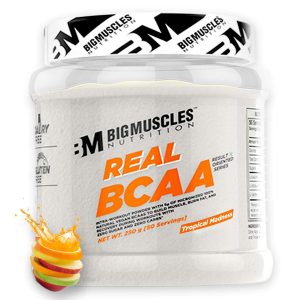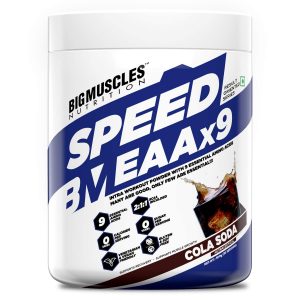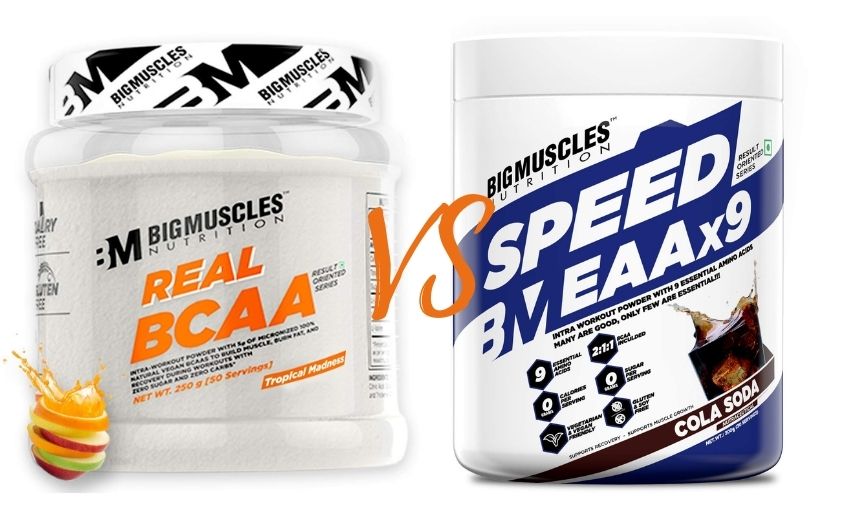If you regularly go to gyms, you’ll know the term BCAA. But how do the ‘branched-chain amino acids’ work exactly, and how do they differ from the EAA? Switch to Knowledge Nerd mode quickly and be open for a short upgrade in essential (essential) amino acids. Short, concise information about the properties of BCAA and EAA and their relationship to each other.
Comparison of BCAA & EAA
The acronym
Frequentwebshops that specialize in nutritional supplements for athletes can quickly become dizzy from the ubiquitous abbreviations. A prominent example is BCAA (Branched Chain Amino Acids) and is offered by Bodylab24 in different variants. In addition to bums-neutral powder, capsules are available, or a delicious BCAA Drink Powder Matrix Formula is available in several flavors.
What does BCAA do?
BCAA – a blessing for the muscles.

The abbreviation BCAA stands for Branched Chain Amino Acids and contains the single amoniic acids leucine, isoleucine and valine. Amino acids are the smallest protein building blocks. The protein from your food, e.B. meat, fish, protein shakes or various dairy products, is broken down into amino acids in the body. The resulting protein fragments (including the BCAA) are transported specifically to places where a deficiency of amino acids arises or has arisen. Z.B. the repair of tiny injuries in the muscle fibres after the workout cannot be accomplished without these protein building blocks, especially the BCAA. Since the BCAA is already present as single amino acids in the supplement, they can develop their effect directly in the muscle as quickly available protein building blocks. So they are a real boon for the muscles – which, severely affected by a hard workout, can more than use an extra portion of amino acids for regeneration and muscle building.
BCAA Vs. EAA
BCAA are among the amino acids that the body has to withdraw from its diet. He cannot make/synthesize them himself. In contrast, the body can produce all non-essential amino acids itself. About 15% of the amino acids present in muscle protein are BCAA.
The amino acids can be absorbed conventionally with a balanced, healthy and protein-rich diet. However, this often does not cover the needs of an intensive athlete. The body must first break down the protein absorbed through the food into amino acids to transport it to the places where it is needed. With an existing calorie deficit or an undersupply of amino acids (protein), the body uses the existing and easily accessible BCAA in the muscles – a muscle loss can result.
The pure, ‘uncensored’ form of amino acids is available to you through targeted supplementation, which works directly where it is needed – without the detour via the synthesis of protein.
More = Better?
When scrolling in the Bodylab24 webshop, you will notice another abbreviation connected with protein and amino acids, EAA. We are talking about Essential Amino Acids, a combination of nine essential amino acids, including BCAA. A quantitative and also qualitative leap compared to the BCAA trio leucine, isoleucine and valine – one should think! But the equation is not that simple.
EAA – real experts?

Not every one of the nine amino acids is equally important to the body for all its amount. Rather detrimental is even the mixed ratio contained and the number of premium amino acids – the BCAA. In the classic BCAA supplements, leucine, isoleucine and valine are contained in a mixing ratio of 2:1:1 and high dosage. There are also mixtures with an even higher proportion of leucine. In most EAA supplements, their proportion is lower than in the pure BCAA supplement. They are not contained in a similar (and therefore particularly beneficial for the body and muscles) mixing ratio.
Why EAA at all?
I see the question mark on your face. If BCAAs work so directly and precisely in the body and especially for the muscles, why eAAs? But these also fulfil their purpose, are involved in numerous metabolic processes (not only around protein synthesis) and can support the protein supply e.B. within the framework of a protein- and/or calorie-reduced diet, a purely vegetarian or vegan diet.
Personal choice – Conclusion
Whether a BCAA or EAA supplement should be used must be answered personally by everyone, as the need depends heavily on the physical activities of the individual and his or her dietary habits. The body needs the different EAA for a wide variety of processes, e.B. various metabolic processes, synthesis of the body’s own substances, repairing the smallest damage to muscles, etc. However, their importance for the body is different, and the BCAA is certainly one of the most valuable within the essential amino acids, especially for the ambitious athlete.
Through a balanced and healthy diet, all EAA, including BCAA, are usually absorbed through food. If necessary, additional supplementation can be performed. EAA and BCAA supplements can also be an enrichment for a vegan or purely vegetarian lifestyle, as the highest proportion of amino acids is contained in animal protein. Vegetarians and vegans, in particular, should therefore find out about the exact composition of their food and eat particularly varied so that their body is supplied with all important amino acids.
To make a personal choice, you should test both supplements. Then you can decide what your body really needs with a view to your personal training goals. A combination is also possible, using an EAA supplement to enrich the diet and BCAA around training.


